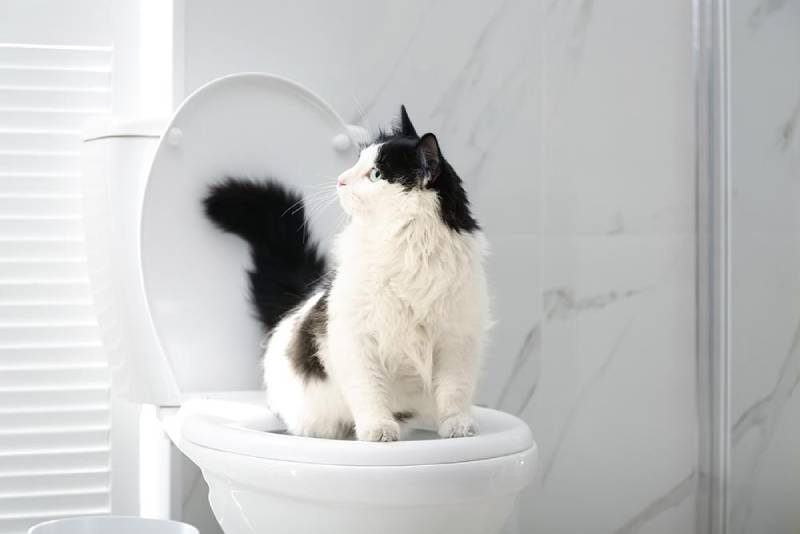The Risks of Flushing Cat Poop in Your Toilet - Preventive Steps
The Risks of Flushing Cat Poop in Your Toilet - Preventive Steps
Blog Article
This article down below in relation to How to Dispose of Cat Poop and Litter Without Plastic Bags is really intriguing. Don't miss out on it.

Introduction
As feline proprietors, it's necessary to be mindful of exactly how we take care of our feline buddies' waste. While it may seem convenient to purge cat poop down the commode, this technique can have detrimental effects for both the atmosphere and human health and wellness.
Alternatives to Flushing
Thankfully, there are much safer and more accountable means to take care of cat poop. Think about the adhering to options:
1. Scoop and Dispose in Trash
One of the most usual approach of getting rid of feline poop is to scoop it into a naturally degradable bag and throw it in the trash. Be sure to use a dedicated litter inside story and dispose of the waste without delay.
2. Usage Biodegradable Litter
Select naturally degradable cat clutter made from materials such as corn or wheat. These litters are eco-friendly and can be safely taken care of in the garbage.
3. Bury in the Yard
If you have a yard, take into consideration burying cat waste in a designated location away from vegetable yards and water sources. Make certain to dig deep sufficient to stop contamination of groundwater.
4. Mount a Pet Waste Disposal System
Invest in a family pet waste disposal system particularly made for feline waste. These systems utilize enzymes to break down the waste, minimizing smell and ecological influence.
Health and wellness Risks
In addition to environmental worries, purging pet cat waste can likewise pose health and wellness dangers to people. Cat feces might include Toxoplasma gondii, a bloodsucker that can cause toxoplasmosis-- a possibly serious illness, specifically for expecting females and people with weakened immune systems.
Ecological Impact
Purging pet cat poop presents dangerous virus and parasites into the supply of water, posturing a substantial danger to water ecosystems. These impurities can negatively affect marine life and compromise water quality.
Final thought
Liable animal possession expands past offering food and sanctuary-- it also involves appropriate waste administration. By avoiding purging cat poop down the toilet and choosing alternate disposal techniques, we can lessen our ecological impact and safeguard human health and wellness.
Why You Should Never Flush Cat Poop Down the Toilet
A rose by any other name might smell as sweet, but not all poop is created equal. Toilets, and our sewage systems, are designed for human excrement, not animal waste. It might seem like it couldn’t hurt to toss cat feces into the loo, but it’s not a good idea to flush cat poop in the toilet.
First and foremost, assuming your cat uses a litter box, any waste is going to have litter on it. And even the smallest amount of litter can wreak havoc on plumbing.
Over time, small amounts build up, filling up your septic system. Most litter sold today is clumping; it is made from a type of clay that hardens when it gets wet. Ever tried to scrape old clumps from the bottom of a litter box? You know just how cement-hard it can get!
Now imagine just a small clump of that stuck in your pipes. A simple de-clogger like Drano isn’t going to cut it. And that means it’s going to cost you big time to fix it.
Parasitic Contamination
Believe it or not, your healthy kitty may be harboring a nasty parasite. Only cats excrete Toxoplasma in their feces. Yet it rarely causes serious health issues in the cats that are infected. Most people will be fine too if infected. Only pregnant women and people with compromised immune systems are at risk. (If you’ve ever heard how women who are expecting are excused from litter cleaning duty, Toxoplasma is why.)
But other animals may have a problem if infected with the parasite. And human water treatment systems aren’t designed to handle it. As a result, the systems don’t remove the parasite before discharging wastewater into local waterways. Fish, shellfish, and other marine life — otters in particular — are susceptible to toxoplasma. If exposed, most will end up with brain damage and many will die.
Depending on the species of fish, they may end up on someone’s fish hook and, ultimately on someone’s dinner plate. If that someone has a chronic illness, they’re at risk.
Skip the Toilet Training
We know there are folks out there who like to toilet train their cats. And we give them props, it takes a lot of work. But thanks to the toxoplasma, it’s not a good idea.

I stumbled upon that write up about How to Dispose of Cat Poop and Litter Without Plastic Bags while doing a lookup on the search engines. Make sure you take the time to distribute this blog posting if you liked it. Thank you so much for going through it.
Learn More Report this page